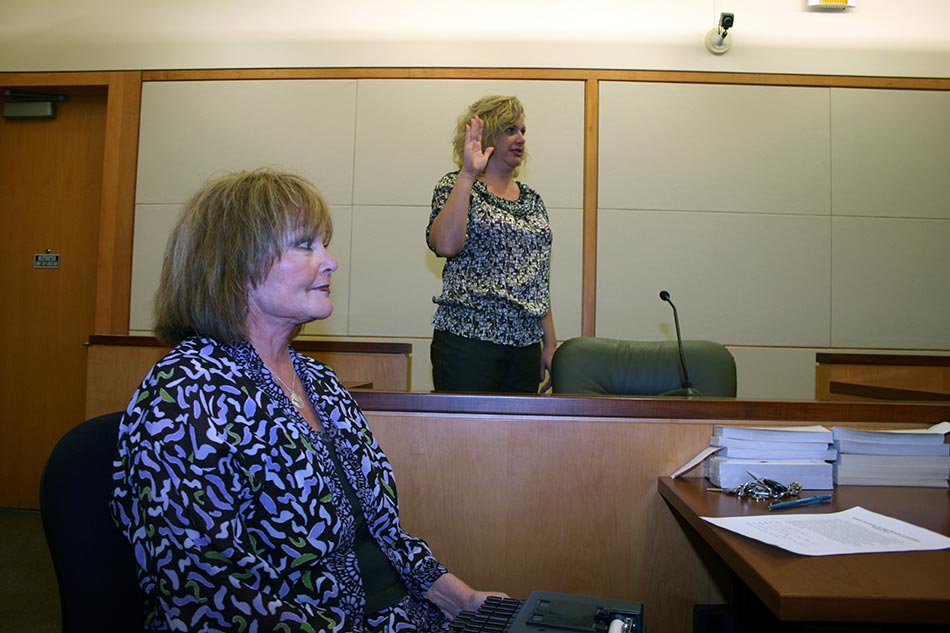IN THIS PHOTO: From left to right - Kim H., Court Reporter; Heather M., witness
Adjudication Hearing
If a juvenile denies the charge and wants a trial, the court will schedule an Adjudication Hearing. The Adjudication Hearing is a trial, where people come to court, take an oath to tell the truth and testify about the charge. The court also can receive documents offered at trial to evaluate the charge.
At trial, the court first hears evidence from the prosecutor. The court then hears any evidence the juvenile wishes to offer, although the juvenile is not required to offer any evidence. The court then hears any additional evidence the prosecutor may offer in response. The court hears closing argument from the prosecutor and juvenile about what the evidence shows. After receiving evidence and hearing argument, the court then decides whether the evidence proves the charge.
In my court, a juvenile does not have a right to a jury trial. Instead, I hear the evidence and then decide whether the charge has been proven. A delinquency trial generally does not last more than an hour or two and I try to decide whether the charge has been proven on the same day trial is completed.
For an Incorrigible, Misdemeanor or Felony charge, the question is whether the charge has been proven "beyond a reasonable doubt." I use the following standard to decide whether a charge has been proven beyond a reasonable doubt:
"There are very few things in this world that we know with absolute certainty, and the law does not require proof that overcomes every doubt. If the evidence leaves the court firmly convinced that the juvenile committed the offense charged, the burden has been met. If the evidence leaves a real possibility that the juvenile did not commit the offense charged, the juvenile is to be given the benefit of the doubt and found not delinquent."
If the charge has not been proven by this standard, the Petition or Citation will be dismissed. If the charge has been proven by this standard, the court will find the juvenile incorrigible (for an Incorrigible charge) or delinquent (for a Misdemeanor or Felony charge) and hold or schedule a Disposition Hearing.

